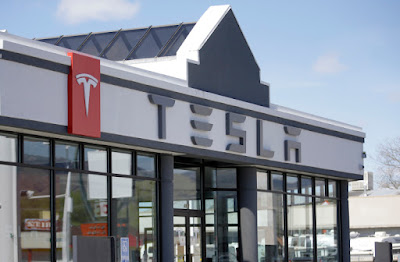Tesla finally unveiled its Model 3 today. The $1,500 car drew a staggering 150,000-plus orders — $115 million in deposits and $4 billion in potential sales — before it had even been unveiled, but another interesting point to note is that it will be Tesla’s first to be sold in India, Brazil and other notable international markets.
The company just massively increased its potential sales by adding pre-orders in India (population 1.25 billion), Brazil (200 million), in addition to South Africa, South Korea, New Zealand, Singapore, Ireland and potentially others. I say potentially others because the expansion is based on a tweet from CEO Elon Musk — given Twitter’s 140 character limit, there could be more countries that Musk wasn’t able to fit into his message. (We’ve checked in with Tesla to ask exactly which new countries it will sell in.)
Adding several more countries to Model 3 order page tonight. Check for details, but will include India, Brazil, SA, SK, NZ, Sing & Ireland.
In line with that, Musk also said that Tesla will more double its number of stores to cover over 440 locations across North America, Europe and Asia by the end of 2017.
The Model 3 will be Tesla’s most affordable car — indeed the deposit is just $1,000 — so it will be fascinating to see how it is received in price sensitive markets like India and Brazil that have huge populations.
Since the car won’t go into production until next year, there’s no instant answer and there’s a small window for other automakers to introduce competition. As with any electric car, Tesla’s tempered by its charging infrastructure in each country — you don’t buy an electric car if finding places to charge it will be problematic — so the company will need to work on adding enough stations in these new countries, too.
There’s no clear date for when the vehicle will be available in new markets. Tesla said that, once the car is ready, it would begin fulfilling orders in the U.S. first, before moving on to Europe before tackling other regions.
“It is not possible to ship to all regions simultaneously because regulators in each part of the world have slightly different production requirements. Staggering deliveries in this way also allows us to provide the best possible customer experience,” the company explained.







0 comments:
Post a Comment